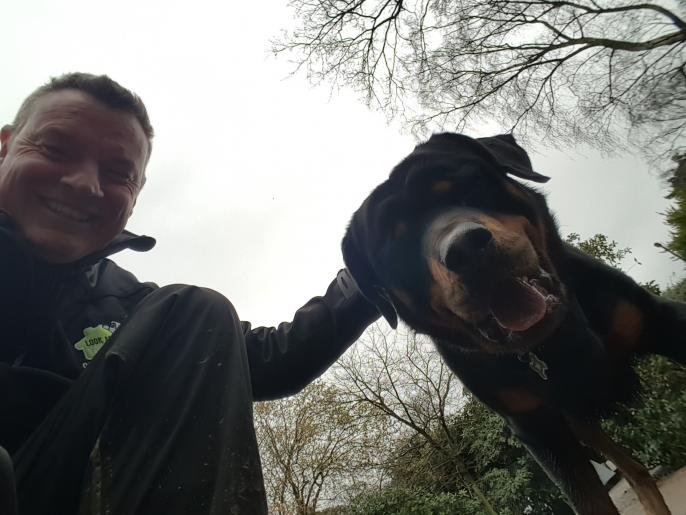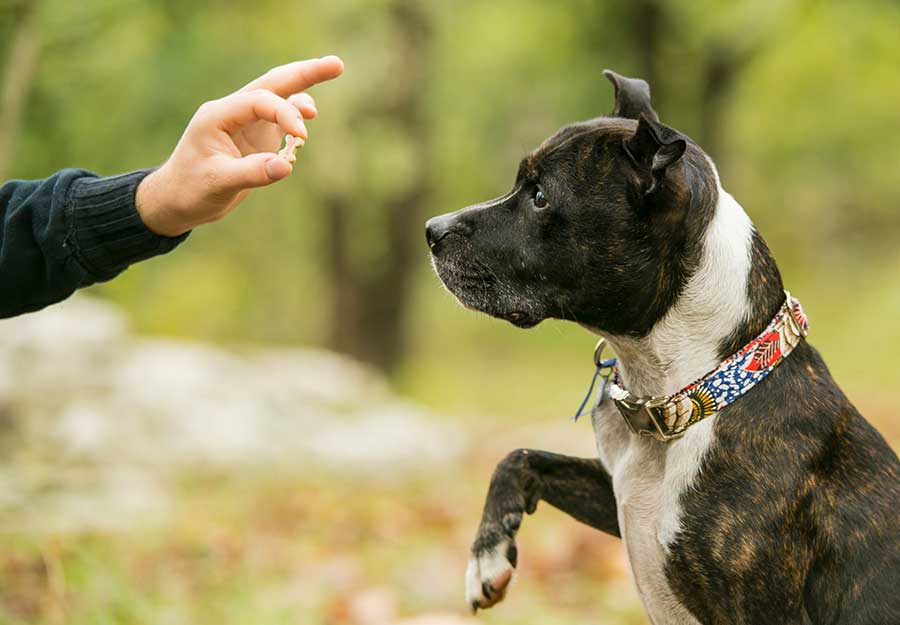The Ultimate Overview to Dog Training: Change Your Pet's Behavior
Effective pet training is important for promoting a harmonious partnership between pet dogs and their proprietors. This overview not just intends to outfit you with the essential devices to change your pet dog's habits yet additionally invites you to check out just how these fundamental principles can lead to a much deeper connection with your animal.
Understanding Canine Habits
Recognizing canine habits is crucial for efficient training and an unified relationship between canines and their proprietors. A canine's behavior is affected by a mix of genes, atmosphere, and experiences. Dog training. Acknowledging these elements enables proprietors to tailor their training approaches to fulfill the individual requirements of their pets
Pet dogs communicate mostly through body language, articulations, and facial expressions. A wagging tail can show exhilaration or joy, while a tucked tail may signal concern or entry. Observing these hints enables proprietors to respond properly, reinforcing favorable actions and addressing adverse ones effectively.
Furthermore, understanding the social framework of pets can offer understandings right into their habits. Dogs are pack pets, and they grow in a structured setting. Establishing clear boundaries and regular rules can stop confusion and advertise a complacency.
Additionally, acknowledging the all-natural reactions of canines, such as need to dig or chase after, is important. These impulses can be rerouted via proper outlets, such as play or workout. By comprehensively recognizing these behavior elements, owners can cultivate a favorable training experience, eventually resulting in a well-adjusted and obedient canine companion.
Necessary Educating Strategies
Efficient pet dog training counts on a variety of vital techniques that can significantly enhance the learning procedure for both the proprietor and the pet dog. One essential method declares support, which involves rewarding preferable behaviors with treats, appreciation, or play. This technique encourages canines to repeat the habits that bring about favorable end results, promoting a relying on connection in between the animal and owner.
An additional key strategy is uniformity in assumptions and commands. Utilizing the exact same verbal signs and hand signals helps the pet comprehend what is called for, decreasing confusion and promoting quicker discovering. Furthermore, developing clear borders and policies is critical for effective communication.
Socializing is additionally an essential part of training. Subjecting canines to different environments, individuals, and other animals assists them create ideal social abilities and reduces anxiousness in unfamiliar situations.
Last but not least, perseverance and timing are important. Training sessions ought to be brief but regular, ensuring that the pet dog continues to be involved and receptive. By utilizing these essential strategies, owners can create a organized and positive training experience that promotes excellent behavior and reinforces the bond with their canine friends.
Developing a Training Arrange
Just how can a well-structured training timetable improve a pet's understanding experience? A training routine gives uniformity, making sure that canines obtain routine, focused guideline. This predictability aids pet dogs recognize what is anticipated of them, strengthening their knowing and enabling for far better retention of commands and behaviors.
When developing a training timetable, it is important to think about the pet dog's age, type, and individual temperament. Young puppies may gain from shorter, much more regular sessions, while grown-up dogs may flourish with longer, less frequent training durations. Incorporating a variety of tasks can likewise keep the sessions engaging, stopping dullness and advertising enthusiasm for discovering.
Furthermore, scheduling training sessions at particular times of the day can help strengthen a regimen. As an example, coupling continue reading this training with everyday walks or playtime can develop a favorable organization with learning. It is additionally crucial to consist of time for support, such as deals with or praise, to award desired behaviors immediately.
Last but not least, flexibility is key. While uniformity is essential, being adaptable to the pet dog's mood or energy degree can improve their learning experience. A well-crafted training routine inevitably lays the foundation for effective interaction and a stronger bond in between the canine and owner.
Common Educating Challenges
Despite having a well-structured training routine, pet dog owners often come across various challenges throughout the training procedure. One common problem is disparity in signs and commands. When multiple family participants use different terms or tones, a dog might become baffled, hindering its ability to find out successfully.
An additional frequent obstacle is disturbance. Dog training. Pet dogs are naturally curious animals, and exterior stimulations such as various other pets, noises, or people can divert their interest throughout training sessions. This requires proprietors to create a controlled setting or progressively present interruptions to enhance focus
In addition, differing energy degrees can impact training results. High-energy pets may struggle to calm down and concentrate, while extra easygoing breeds could require additional motivation to involve. Tailoring the training approach to fit the specific canine's personality is necessary for success.

Building a Solid Bond
A solid bond between a pet dog and its proprietor is essential for effective training and total well-being. Dog training. This partnership fosters count on, which is essential for reliable interaction throughout the training procedure. When a dog really feels secure and connected to its proprietor, it is most likely to respond favorably to commands and signs
To build this bond, consistency is key. Establishing a routine that consists of routine feeding, exercise, and training sessions helps develop a sense of stability. Additionally, positive support methods, such as treats, praise, and play, reinforce wanted actions while strengthening the emotional link.
Socialization is an additional vital element of bond-building. Revealing your try this pet dog to different settings, individuals, and other pets helps them really feel more confident and comfy, improving the bond with their owner. Taking part in activities with each other, such as walking, playing bring, or taking part in obedience training, advertises team effort and common enjoyment.
Verdict

Comprehending pet behavior is crucial for efficient training and a harmonious relationship in between canines and their proprietors.Reliable canine training relies on a range of crucial strategies that can substantially improve the learning procedure for both the canine and the proprietor.In spite of having a find more well-structured training timetable, canine owners often run into different obstacles during the training procedure.In final thought, effective pet dog training counts on a comprehensive understanding of canine habits, the application of essential strategies, and the establishment of an organized training schedule. By stressing favorable reinforcement and consistency, canine proprietors can dramatically improve their pet dogs' behavior, eventually making sure a harmonious partnership and promoting the health of both the pet dog and its environment.